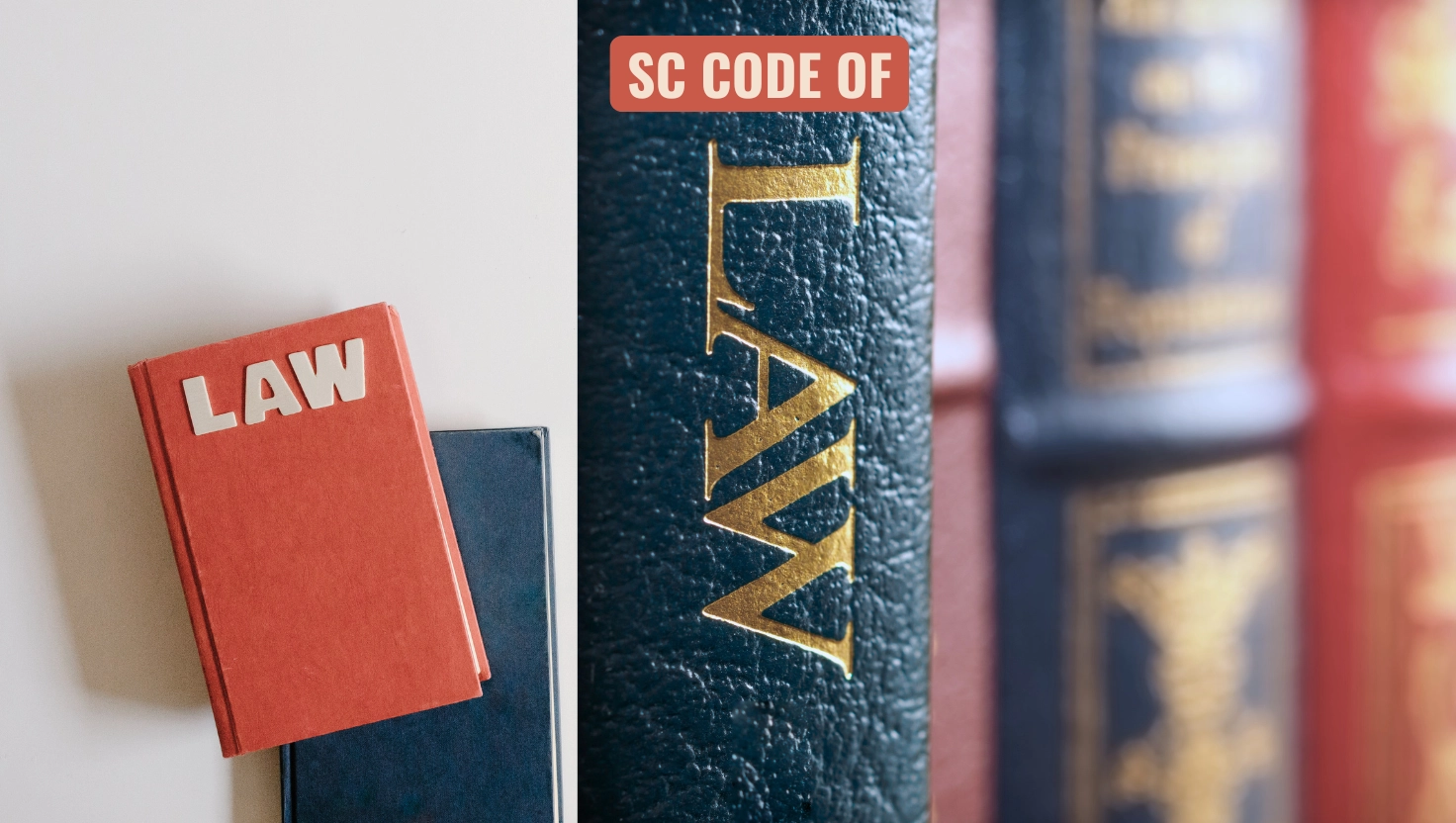It is becoming tiresome to repeat that individual freedom and responsibility are being steadily replaced by totalitarian government control of increasingly small details of our lives. Just the relatively few bills enacted into law in South Carolina in 2025 illustrate the continuing and burgeoning growth of State control.
How is this accomplished? Not just by increasing the State bureaucracy. Increasing control is slipped in using a variety of subtle changes to laws and bills that become law. Some of these changes appear essential to make sure the laws are exact and “limited” to the subject at hand, but that is a poor and incomplete argument.
Subtle changes include expanding sections of laws such as the definitions of terms, often changing many definitions’ formerly clear meanings. While the section of definitions is important and should be helpful to make sure each law is clear and properly focused, in reality the definitions often reflect insidious changes occurring within society—cemented then into law. In today’s world, with the ambiguous nature of words and the many, often opposite, opportunities for interpretation, definitions provide a wealth of control, particularly for the judicial branch of government.
A small example is Senate Bill 29, which amends the State Code of Laws Section 16-15-375 (Crimes and Offenses). S29 pertains to the “…dissemination of harmful material to minors….” Note that this amendment expands the law, not repealing or deleting so the body of law, as usual, grew by this “necessary” clarification. Does the reality that the world is changing really require every law cover every possible means by which a crime is committed? Is it not impossible to define a crime with enough clarity to encompass a wide enough range of ways it could be committed without expanding beyond comprehension the details of its possible commission? Just wondering. No wonder it is impossible for anyone to know all the laws he/she could break, as law has become so confusing, intimidating, and immense in volume.
A second way government power is expanded through law is by creating new categories to address. This is most evident in criminal law. Active areas in which this occurred in 2025 include AI and child sexual abuse and exploitation, the latter seen in S28 which adds a new crime of “…obscene visual representations of child sexual abuse….” It is clear that sexual abuse of children is a hideous crime, but this need to continually expand the Code of Laws in every category with increasing detail does not bode well for avoiding a level of state control that is ubiquitous, as this trend appears everywhere.
Other bills that will be in play in 2026 include dangerous “hate crimes” bills, which add new powers to “triers of fact” and judges through increased “definitions” and interpretations of intent, real or imagined. These added criteria will be used to increase the severity of punishment. They create a significant danger of cruel and unusual punishment for accidents or other actions not necessarily based on some racial or other supposed “motive.” “Motives” may be conjured out of invasions of privacy or other means to find evidence of allegations that should be beyond the legitimate scope of law. Such laws will only be useful for political, social justice or other state control mechanisms and intimidation should they be passed.
Another way government controls us is through “helpful” requirements. S78 is basically a requirement that all school boards must provide online streaming of all public meetings. Disappearing are the “good old days" when people would take time to show up to actually engage in discourse. It is, in the mind of this writer, unfortunate that such laws as S78 facilitate that lack of public participation—while also removing the annoyance to schools board members of public attendance while potentially minimizing the time members of the public might address the board. Why should every school district have to assume the time, expense, and burden of streaming regardless of circumstances?
Other examples include S269, which contains requirements for a local school district that engages private security services. H4067 requires that a medical doctor be onsite if an emergency room is open. Why does the State have to require this? Such requirements restrict local control, ignore the will, needs or desires of local people, and prevent the ability to adapt local services to community reality. Again, they transfer more power to the state.
While not well-represented in this year’s new laws (excepting S62) education standards are often written into law. Various ways to control educational content and resources, as well as the parameters for standards in law, grow the power and danger of State education. Standards already effectively exist as regulations developed by the State Department of Education, but putting curricular requirements within the code of laws raises their impact to a much higher level.
The biggest and most obvious increase in government power associated with laws comes from explicit regulations. Many people seem to think that regulations are those policies and procedures that various entities create. Sometimes called frameworks, hidden within “Acts” with misleading titles, etc., “regulations” ostensibly are to help various entities, from schools to private businesses, non-profits, and other organizations implement and complete the intent of a law. However, the distinction between regulations and law is eroding. More and more “regulations” are appearing directly in proposed bills and becoming law.
Expanding laws to include more and more of the details noted above (definitions, categories to address, requirements, standards, regulations, etc.) causes many problems. One, as law, these details can be difficult to change. Two, laws come with the “police power of the state” behind them, taking local or personal control and choice away. The State becomes the final arbiter of what is to be done. Three, it is impossible for everyone to be aware of all the laws all the time. Embedding all this into increasingly long, complex, and confusing sections within a huge code of law makes it even more unlikely one can easily find out what is “legal.” The likelihood, at some point, of inadvertently breaking the law becomes high. Four, laws limit activity, sometimes discouraging or preventing it; laws rarely expand possibilities. Five, costs, fees or fines, and other personal issues may be incurred in order to comply or if deliberately or inadvertently circumvented. Limiting personal or even business activities may become a more common recourse for those who realize the power of the state and wish to limit exposure to it, as well as minimize their stress levels. Six, the State, and the legislature itself, apparently and inevitably tend to become immune to input from other points of view and even the people the laws impact—especially if they are not “a constituent” of a particular legislator. Fewer and fewer people control the laws and thus the people, shut out divergent points of view, and often ignore common sense or true knowledge about the subject of any given law. Seven, new laws can be, and are, written by powerful groups and disseminated throughout the states (much easier than trying to change local ordinances and rules) to promote a specific agenda and create compliance within many or all states with the same bill template. All this really does is make things much easier for think tanks and political, financial, and corporate interests, etc., to run our country, to name just a small set of powerful groups even outside the government itself.
One last thought. Is the perceived need for more and more law really a government problem, or do the people of this state and our country need to wake up to a radical and unopposed take-over and change of our American society? People wake up, please!
In lieu of an extensive presentation about the growth of regulations becoming law, the following list of some of the laws enacted in 2025 (remember this was a relatively “slow” year) may provide a glimpse into the scope and seriousness, as well as the ridiculousness, of what our legislature believes is necessary to regulate far too many aspects of society using the police power of the State. The people in our governing bodies have assumed positions of relatively uncontrolled power against which people must resist.
All 2025 bills may be viewed on the SCStatehouse.gov website. Under Quick Search enter the bill number, click the Bill Number button, click on the Search icon:
S 2 Department of Behavioral Health and Developmental Disabilities
S 79 Work Experience Credit for Educators
S 89 Military Affairs Advisory Council
S 101 Firefighter Registration
S 157 Storm Damage Recovery
S 171 Reproved and Regroovable Tires
S 179 Certified Public Accountants
S 210 Captive Insurance Companies
S 214 State Commission for Community Advancement and Engagement
S 218 Veterans Homes
S 219 Snapper-Grouper Fishery applies FEDERAL regulations
S 220 Insurance Holding Company Regulatory Act
S 221 SC Kratom Consumer Protection Act food additive
S 271 PSC Elections
S 275 EV Charging Stations
S 307 Peer-to-peer Car Sharing
S 345 Baiting Wild Turkeys
S 363 Department of Natural Resources Joint Resolution regulations
S 367 Abandoned Vessels, Derelict Vessels, and Sunken Vessels
S 389 State Commission on Higher Education
S 507 IRC Conformity compliance with FEDERAL
H 3058 Disclosure of Intimate Images
H 3127 Failure to Stop a Motor Vehicle
H 3196 Educator Assistance Act
H 3247 Excused School Absences Can’t local districts have their own rules?
H 3333 Tax Increment Financing including certain affordable housing
H 3430 Tort Reform and Liquor Liability
H 3432 Grantor Trust Reimbursement
H 3472 Small Estates
H 3523 Organized Retail Crime
H 3563 County Veteran’s Affairs Office
H 3571 Underground Facility Damage Prevention… regulations for digging a big hole
H 3862 Charter School Enrollment Preference Criteria and Procedures
H 4247 Commodity Code Execution
Italics represent author’s notes. Readers are encouraged to come to their own conclusions—and even look at some of these laws.

Subscribe to ConservaTruth's Email Newsletter for curated insights on South Carolina's legislative activities and conservative viewpoints, delivered straight to your inbox! With vetted and easy-to-understand information, our newsletter empowers you to become an informed and engaged citizen, actively participating in safeguarding our cherished Constitutional values. Don’t miss out on crucial updates—join our community of informed conservatives today!





Comments